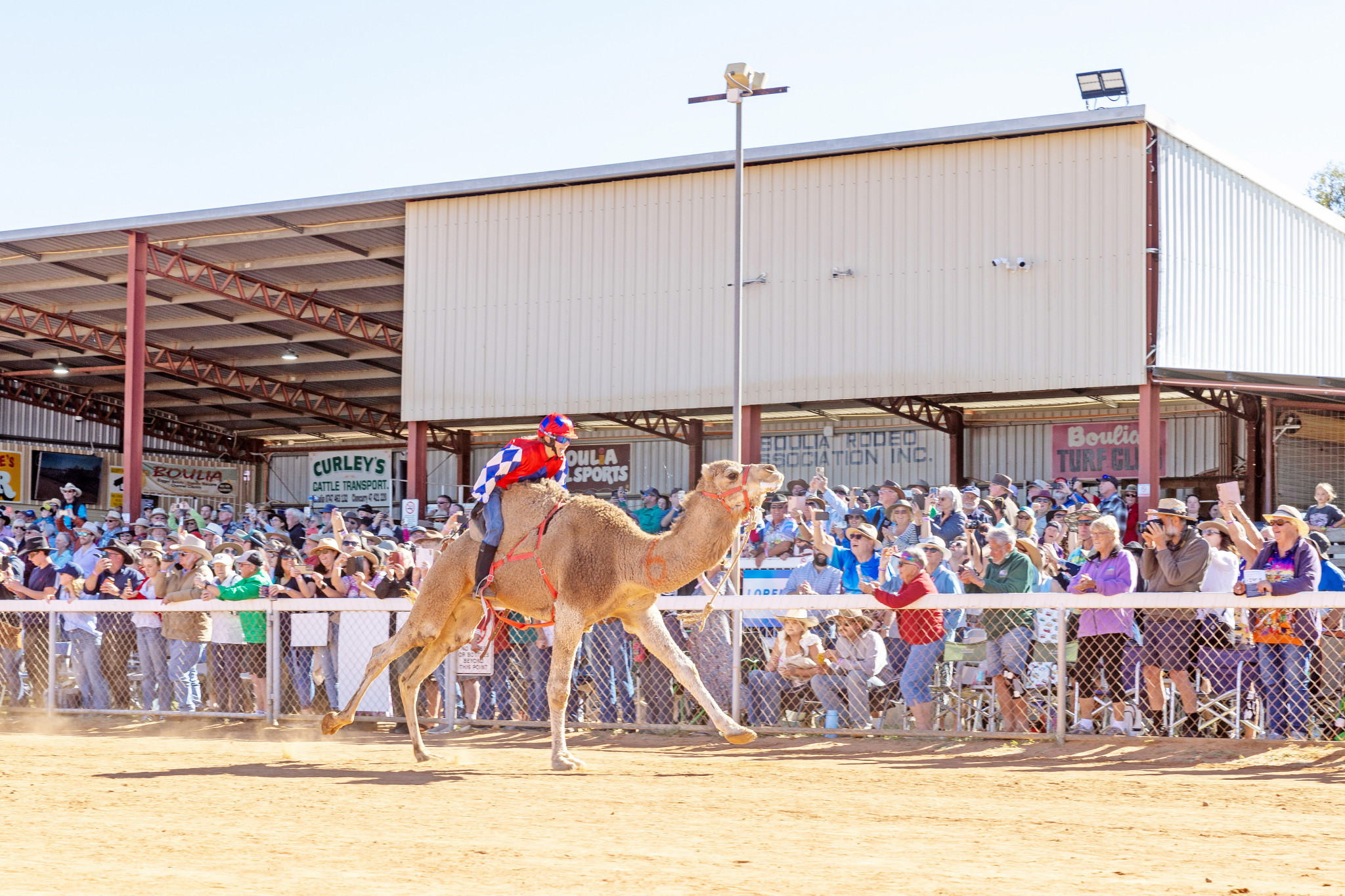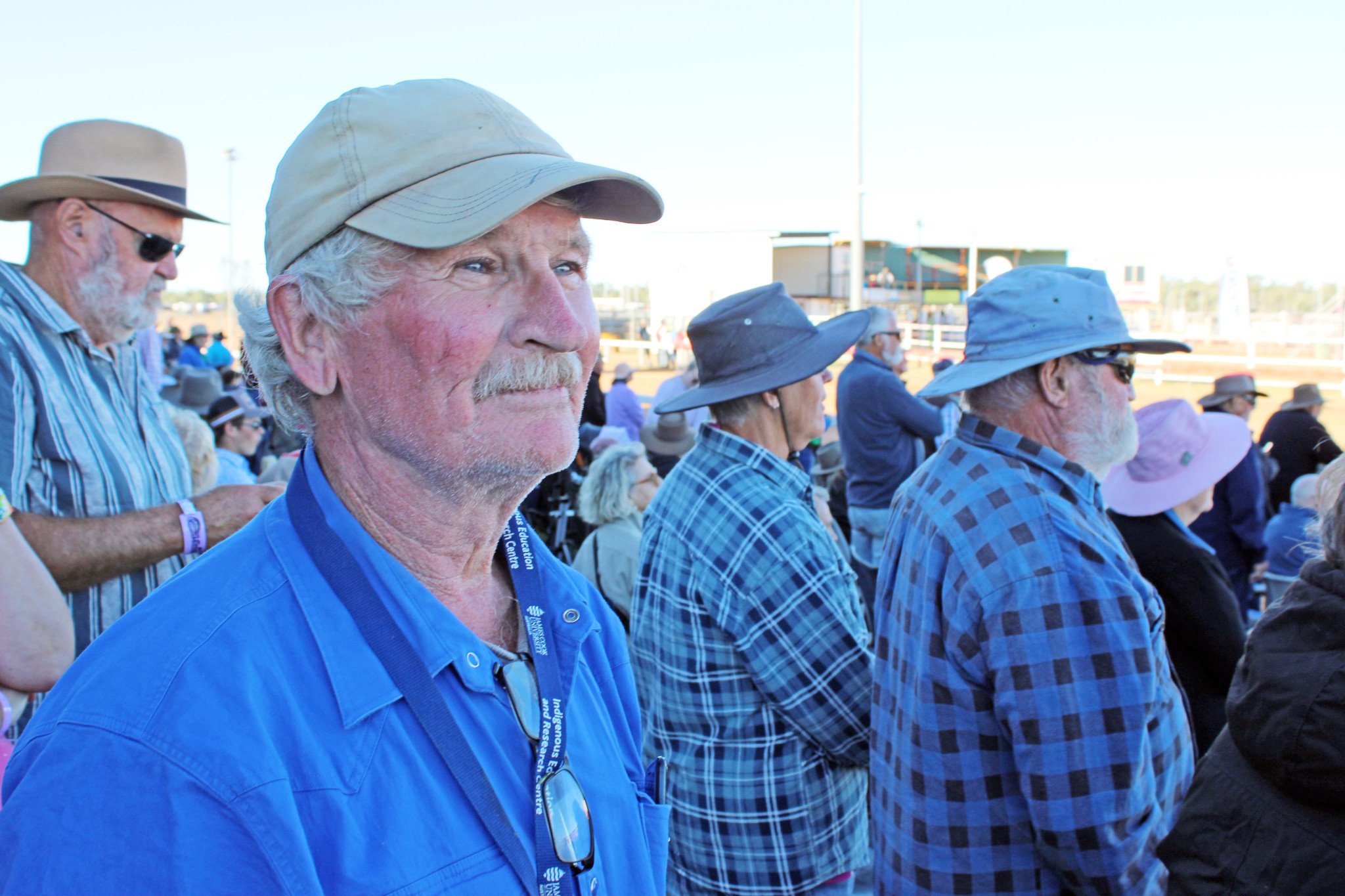Community
24 July, 2024
Camel racing visionary has big plans for the dromedary industry
The man who helped found the Boulia Camel Races wants to grow the sport nationally and globally.

Standing among the throngs of tourists packed into Boulia to watch the camels race, Paddy McHugh couldn’t help but marvel at how far the sport has come.
“I can’t believe how many people are here,” Paddy tells North West Weekly as he surveys the gathering.
“When we started there was no real prizemoney and only a few hundred people came. Now the caravans are lined up as far as you can see.”
One of the key instigators of the Boulia Camel Races, Paddy’s commitment to these animals – whether it be racing them, trekking them, trading them or farming them – has never wavered.
Despite entering his fifth decade of lobbying for a viable Australian camel industry, Paddy has not lost his enthusiasm.
But that doesn’t mean he isn’t frustrated. That’s the trouble with having a vision – you are often talking about ideas that you can see clearly but others can’t.
“Australia needs to get off its backside and stop shooting the wild camel population. Shooting them with a gun will never ever solve the problem,” Paddy says.
“Blind Freddy can see there is an industry for this nation, but nothing happens in this world unless a government institution gets behind it and the politicians and bureaucrats don’t want to listen.”
Paddy believes the growing numbers of tourists travelling to Boulia each year and following the camel racing circuit to places like Jundah, Tara and Bedourie, is providing a window of opportunity to draw sports broadcasters and potentially an international audience to a bigger and bolder Australian camel racing industry.

As a committee member on the International Camel Racing Federation (ICRF), Paddy travels the world spruiking Australia’s potential despite the naysayers at home.
It also enables him to keep his finger on the pulse of global developments – he says the Saudis plan to make camel racing their feature sport if they are successful in their rumoured bid for the 2036 Olympic Games.
Paddy says as the sport grows, he is trying to quietly nudge the Saudis towards adopting camel races closer in style to the events we see in Boulia.
“I am trying to influence it as much as I can because their camel racing can be a bit on the boring side,” he says.
“They do 6km, 8km and 10km races and you don’t get to see the camels except on the screen.
“They also don’t have human jockeys, they use robots. The jockey is a cordless drill turned sideways that holds a whip and they use a remote control to turn it. The races are good in their own way – and they get very excited by it and they spend millions of dollars on these races – but it is vastly different compared to what we do here.”
Paddy says the excitement of the short-form camel race, which has gradually reduced in distance in Australia from the original 2km to 400m dashes today, should be beamed onto screens by the major sports broadcasters.
He maintains there is already interest in such a prospect.
When North West Weekly met up with Paddy in Boulia, he was leading around a GQ magazine journalist and had just completed an interview with National Geographic.
He was also discussing broadcasting options with city-based public relations people, claiming he had interest from Sunshine Coast promoters and had discussed the potential with investors from the Middle East.
“When we started there was no prizemoney for camel racing – but now there would be well over $200,000 in prizemoney for camel racing in Queensland – but we need to double that to $400,000 or $500,000.
“Then the Queensland Racing board will take notice. Then the cities will take notice. Money talks.”
Paddy says he would like to see the development of a racing circuit that would culminate with a big event in the south-east corner, which, he says, would draw interest from deep pocketed camel racing enthusiasts, such as the Saudis and Qataris.
“They could fly their private jets into the city and watch the race,” he says.
“It would reflect well on the other camel race events, like the one at Boulia. I think having this kind of event will bring in more corporate money to camel races with their big corporate tents and big crowds and big publicity.
“We could then up the prizemoney in Boulia and leverage it by beaming it straight from Boulia to the big sports networks and then into the world.”